第12章
There were always visitors--uncles and aunts and cousins "from India,"to be reverenced for their relationship alone, and others of the solitary and formidable class, whom she was enjoined by her parents to "remember all your life." By these means, and from hearing constant talk of great men and their works, her earliest conceptions of the world included an august circle of beings to whom she gave the names of Shakespeare, Milton, Wordsworth, Shelley, and so on, who were, for some reason, much more nearly akin to the Hilberys than to other people. They made a kind of boundary to her vision of life, and played a considerable part in determining her scale of good and bad in her own small affairs. Her descent from one of these gods was no surprise to her, but matter for satisfaction, until, as the years wore on, the privileges of her lot were taken for granted, and certain drawbacks made themselves very manifest. Perhaps it is a little depressing to inherit not lands but an example of intellectual and spiritual virtue;perhaps the conclusiveness of a great ancestor is a little discouraging to those who run the risk of comparison with him. It seems as if, having flowered so splendidly, nothing now remained possible but a steady growth of good, green stalk and leaf. For these reasons, and for others, Katharine had her moments of despondency. The glorious past, in which men and women grew to unexampled size, intruded too much upon the present, and dwarfed it too consistently, to be altogether encouraging to one forced to make her experiment in living when the great age was dead.
She was drawn to dwell upon these matters more than was natural, in the first place owing to her mother's absorption in them, and in the second because a great part of her time was spent in imagination with the dead, since she was helping her mother to produce a life of the great poet. When Katharine was seventeen or eighteen--that is to say, some ten years ago--her mother had enthusiastically announced that now, with a daughter to help her, the biography would soon be published. Notices to this effect found their way into the literary papers, and for some time Katharine worked with a sense of great pride and achievement.
Lately, however, it had seemed to her that they were making no way at all, and this was the more tantalizing because no one with the ghost of a literary temperament could doubt but that they had materials for one of the greatest biographies that has ever been written. Shelves and boxes bulged with the precious stuff. The most private lives of the most interesting people lay furled in yellow bundles of close-written manuscript. In addition to this Mrs. Hilbery had in her own head as bright a vision of that time as now remained to the living, and could give those flashes and thrills to the old words which gave them almost the substance of flesh. She had no difficulty in writing, and covered a page every morning as instinctively as a thrush sings, but nevertheless, with all this to urge and inspire, and the most devout intention to accomplish the work, the book still remained unwritten. Papers accumulated without much furthering their task, and in dull moments Katharine had her doubts whether they would ever produce anything at all fit to lay before the public. Where did the difficulty lie? Not in their materials, alas! nor in their ambitions, but in something more profound, in her own inaptitude, and above all, in her mother's temperament. Katharine would calculate that she had never known her write for more than ten minutes at a time. Ideas came to her chiefly when she was in motion. She liked to perambulate the room with a duster in her hand, with which she stopped to polish the backs of already lustrous books, musing and romancing as she did so.
Suddenly the right phrase or the penetrating point of view would suggest itself, and she would drop her duster and write ecstatically for a few breathless moments; and then the mood would pass away, and the duster would be sought for, and the old books polished again.
These spells of inspiration never burnt steadily, but flickered over the gigantic mass of the subject as capriciously as a will-o'-the-wisp, lighting now on this point, now on that. It was as much as Katharine could do to keep the pages of her mother's manuscript in order, but to sort them so that the sixteenth year of Richard Alardyce's life succeeded the fifteenth was beyond her skill. And yet they were so brilliant, these paragraphs, so nobly phrased, so lightning-like in their illumination, that the dead seemed to crowd the very room. Read continuously, they produced a sort of vertigo, and set her asking herself in despair what on earth she was to do with them? Her mother refused, also, to face the radical questions of what to leave in and what to leave out. She could not decide how far the public was to be told the truth about the poet's separation from his wife. She drafted passages to suit either case, and then liked each so well that she could not decide upon the rejection of either.
But the book must be written. It was a duty that they owed the world, and to Katharine, at least, it meant more than that, for if they could not between them get this one book accomplished they had no right to their privileged position. Their increment became yearly more and more unearned. Besides, it must be established indisputably that her grandfather was a very great man.